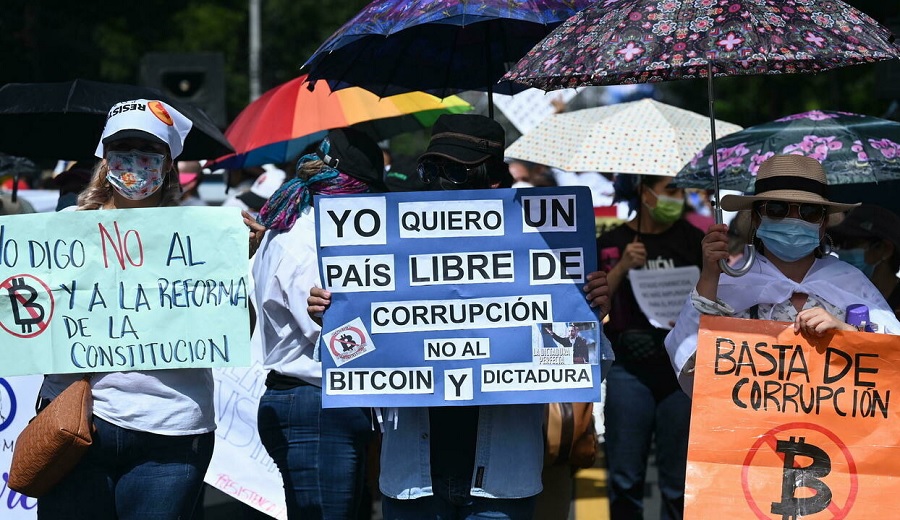RIO DE JANEIRO, BRAZIL – The marriage is over. On Wednesday, September 15, two years after the government’s inauguration, thousands of people took to the streets of San Salvador to shout “enough” of Nayib Bukele, a president that polls continue to place at the top and with a high popularity.
But despite the favorable figures, the president is now facing the most representative act of rejection against his administration. Between 5,000 and 8,000 people held the largest demonstration since Bukele came to power in 2019.

In addition to the number of people in the streets, the leader was defeated in two environments in which he rarely finds opponents: the street and social networks.
The president reacted with angry statements and accused the international community of being behind the protests, financing them and supporting alleged violent acts that, however, did not occur. Before diplomats from major countries and visibly tense, Bukele accused foreign countries of supporting the protesters who took to the streets “to fight against a dictatorship that does not exist.”
“To the countries that don’t like what is happening in El Salvador, let them wait,” he said.
The call for the demonstration became a trend on social networks since the day before and ended the silence after 6 months of controversial reforms that sparked rejection inside and outside the country; from the United States, which compared the Salvadoran president to Venezuela’s Hugo Chavez, to the United Nations, which called for respect for the independence of the judiciary.
On September 15, El Salvador should have celebrated the 200th anniversary of its independence. Everything was prepared for a celebration of white and blue flags, anthems and fireworks, but the most pressing reality imposed itself over protocol speeches and broke the presidential narrative.
Popular fatigue eventually led civilians to set fire to the bitcoin ATM in the heart of the capital, a few meters from the National Palace, a symbol of the power that imposed the cryptocurrency as legal tender.
In addition to the number of protesters, Wednesday’s events mark the first major protest against 40-year-old Bukele, whose popularity ratings remain above 80%. However, his decision to impose bitcoin counts on far less support: close to 53%, according to the Central American University (UCA).
“Bitcoin was the last straw, but we see several months worth of destruction of democracy,” said 49-year-old Betsi Gaviria. She and her friend Leticia Guala, 58, wear a T-shirt with a huge ‘B’ crossed out by a red stripe as a sign of rejection of the cryptocurrency.
“We reject reelection and stand against dictatorship, but when they put their hand in our pockets, people act. They are waking up,” they said, as they walked near Cuscatlán Park.

